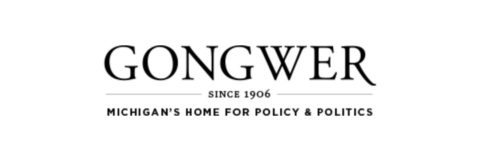Gongwer
Nov. 30, 2022
Nick Smith
Using economic incentives to attract major projects and boost job numbers, improving education and job training programs, and working to prepare the state for vehicle electrification are among the key priorities the Detroit Regional Chamber is hoping to work on with the next leaders of the Legislature.
Items under the categories of promoting economic growth, equitable opportunity and promoting civility were included in a letter provided Wednesday to the incoming leaders for next term. The letter was sent to Sen. Winnie Brinks (D-Grand Rapids) and Sen. Aric Nesbitt (R-Porter Township), who will be the next majority and minority leaders, respectively as well as to Rep. Joe Tate (D-Detroit) and Rep. Matt Hall (R-Comstock Township), the next House speaker and minority leader, respectively.
“As you prepare to lead the state – to capitalize on our opportunities and address our challenges – I share the following perspective from the Chamber in the hope that the new Legislature will take the opportunity to govern from the broad center, rack up some early bipartisan wins, and advance Michigan’s competitive position in the global economy,” Sandy Baruah, the Chamber’s president and chief executive officer, wrote.
A key item listed under promoting economic growth was to create a stable source of revenue for the Strategic Outreach and Attraction Reserve Fund. Mr. Baruah said this would help the state remain competitive in attracting a highly educated workforce to fill critical jobs.
He also wrote that the state’s manufacturing and engineering heritage should not be an area of competition with efforts to build the state’s skilled workforce overall.
“The stark reality is that Michigan must capitalize on our manufacturing competitive advantage today and make major improvements in our educational attainment and skill levels. This is not an ‘or’ conversation,” Mr. Baruah wrote.
As to education, the Chamber urged lawmakers to work together to improve the state’s K-12 education system by focusing on student achievement and funding equity-based models along with increasing spending on higher education, from community colleges and skilled certificate programs on up through four-year institutions. The group also supports increasing funding by $45 million for the Going Pro Talent Fund.
Supporting the expansion of electric vehicle infrastructure was also a priority.
Under the category of equitable opportunity, the Chamber urged an expansion of the Earned Income Tax Credit and to expand the Elliott Larsen Civil Rights Act to include LGBT rights.
Civility in government was another item on which the Chamber urged action.
“Washington continues to set a poor example for civility, productivity, and efficiency,” Mr. Baruah wrote. “In Michigan, we can do better – and you can lead the way in the new Legislature.”
To that end, Mr. Baruah wrote that the within the Legislature, members should create a bipartisan Problem Solvers Caucus like that which U.S. Rep. Debbie Dingell (D-Ann Arbor) and U.S. Rep. Fred Upton (R-Saint Joseph) have been members of for multiple terms.

